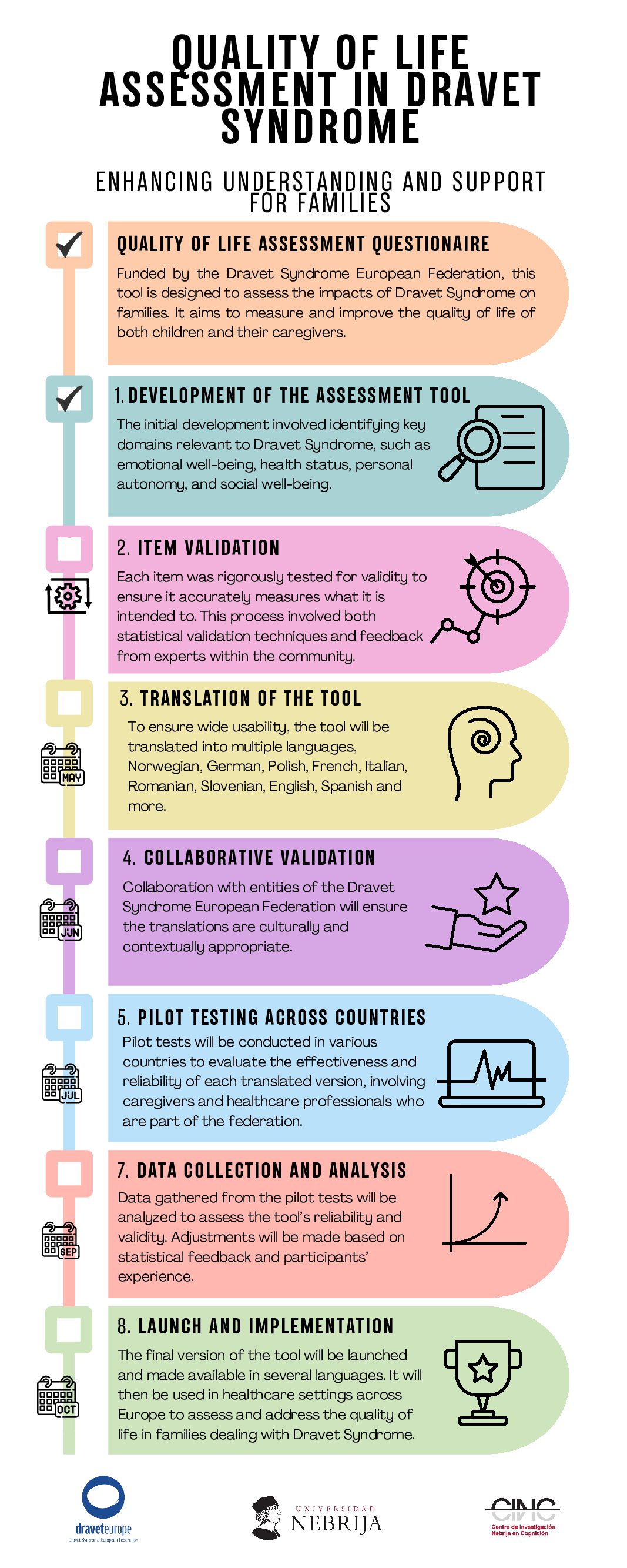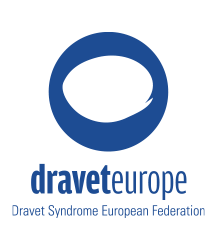
18 Jul New tool to improve quality of life of Dravet patients and their families
The development of more effective support systems and an enhanced quality of life for children with Dravet Syndrome and their caregivers and families is the objective of a new project launched by the Dravet Syndrome European Federation.
The aim of this tool, which is designed to comprehensively evaluate the well-being and quality of life specifically for caregivers and their children who are affected by this severe form of epilepsy, is to identify critical areas where interventions are most needed.
A specialized Quality of Life Assessment Questionnaire to address the unique challenges faced by families and caregivers of children with Dravet Syndrome is the result of a collaboration between the Dravet Syndrome European Federation and the Centro de Investigación Nebrija en Cognición (CINC), a research center affiliated to the Nebrija University in Madrid, Spain.
The initiative is structured in multiple phases, with each phase aiming to assess and improve the quality of life for individuals living with Dravet Syndrome and their support networks. This project is distinguished by its comprehensive and inclusive methodology, engaging a wide array of stakeholders, including patients and their families. Such an approach ensures a holistic view of the challenges faced by those affected by this severe form of epilepsy.
At the core of this initiative is a commitment to collaboration. The development phase of the tools and methods will be conducted in close cooperation between the Dravet Syndrome European Federation and the scientific team directed by Prof. Jon Andoni Duñabeitia at Universidad Nebrija, with the collaboration of critical stakeholders. This will guarantee that our resources effectively address the social, psychological, familial, and economic aspects relevant to Dravet patients and their families.

This partnership is a forward-thinking approach to enhancing the support and understanding of Dravet Syndrome, focusing on the needs and well-being of patients and their families, and marks a pivotal moment in our ongoing mission to enhance the lives of those impacted by this disease.
The approach ensures that our research and outcomes reflect the real-world experiences and needs of the Dravet Syndrome community.
The project will culminate in the creation of an online, multilingual platform designed for the generation and sharing of data across a global scale. This resource aims to serve as a valuable tool for all parties involved, promoting worldwide collaboration and insight into Dravet Syndrome.
Thus, by pooling our resources and embracing the diverse perspectives of our community, we are laying the groundwork for significant breakthroughs in research and support for Dravet Syndrome patients and their caregivers.
We invite you to stay informed about the progress of this transformative project. Together, we are working towards a brighter future for the Dravet Syndrome community.
